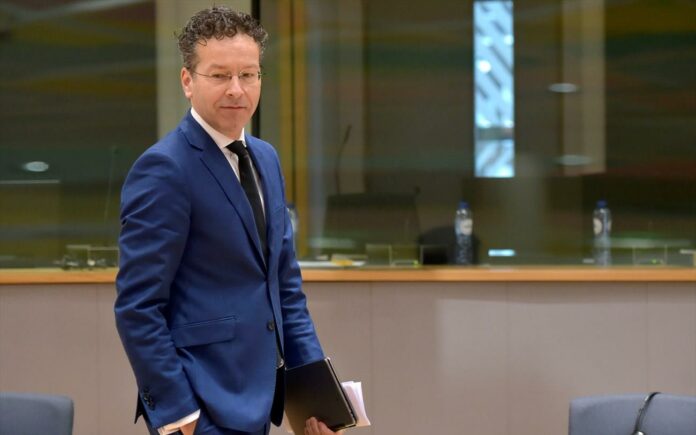Eurogroup chairman Jeroen Dijsselbloem, in statements to the Dutch Parliament last week, expressed a view that the ambitious 3.5-percent primary budget surplus that the Greek state must post – on an annual basis and as a percentage of GDP – should extend to 2022.
His high-profile comment came days before a closely watched Eurogroup meeting on Monday, which is judged as crucial to resuming the current bailout program and commencing whatever substantive deliberations over medium-term debt relief for Greece to ensure that its debt is sustainable.
The issue of how long the 3.5-percent annual fiscal target will extend, to either 2021 or 2022, had not been clarified, at least in writing.
At the same time, European Central Bank (ECB) officials also maintained that if the debt issue isn’t resolved, then Greek bonds cannot be re-included in the ECB’s QE stimulus program.
In a written statement submitted to the Dutch Parliament, Dijsselbloem said the Greek debt’s sustainability is a condition for the IMF participation in the program as a lender. He added that further debt relief measures will be examined “only if necessary, after the conclusion of the program in 2018.”














